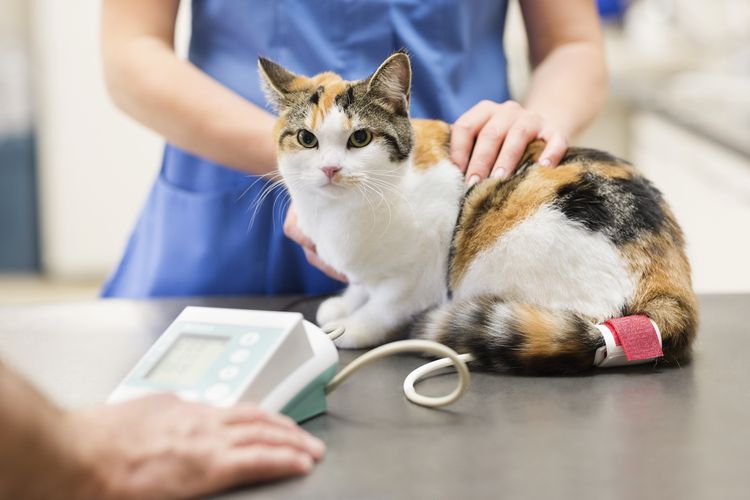
Is your cat losing weight? Unintended weight loss is usually a sign of an underlying health problem. Many owners think that weight loss is normal for senior cats, but this is not the case. It's important to take action if you notice unexplained weight loss in your cat. Find out more about the underlying causes for weight loss, how a diagnosis is made, and how this condition may be treated.
In many cases, cats lose weight when they are not eating enough. However, some diseases cause weight loss despite adequate food intake. Depending on the cause, weight loss may or may not accompany other signs of illness. Many health problems can cause weight loss in cats, some more serious than others.
Hyperthyroidism is a relatively common illness that most often affects older cats. Cats with hyperthyroidism produce too much thyroid hormone due to an enlargement of the thyroid gland. This enlargement is usually caused by a benign tumor that grows on the thyroid.
Common signs of hyperthyroidism include weight loss, increased appetite, and increased thirst and urination. Some cats also experience vomiting, diarrhea, and hyperactivity. Some will vocalize and act restless. Cats with hyperthyroidism may have coats that appear unkempt and greasy. Hyperthyroidism is treated with radioactive iodine or oral medications.
Chronic kidney disease is one of the most common illnesses seen in senior cats. The kidneys produce important hormones, filter out wastes from the blood, help regulate blood pressure, and facilitate the production of new red blood cells. When a cat's kidneys stop functioning properly, it leads to a variety of other issues.
Increased thirst and urination are among the first signs noticed when a cat has kidney issues, followed by loss of appetite, weight loss, and lethargy. Chronic kidney disease cannot be cured, often be medically managed with medication, diet change, and fluid supplementation.
Diabetes mellitus is another common ailment that can affect cats. This endocrine disorder affects the ability of the pancreas to produce insulin, a hormone needed to regulate blood glucose.
Signs of diabetes include weight loss, increased appetite, thirst, and urination, and lethargy. Diabetes is typically managed with insulin and a diet change. Other medications may be used. Some cats will even revert back to normal after several months of treatment.
Any issue in the GI tract can affect a cat's weight. First, GI problems can reduce appetite. Second, some issues prevent the GI tract from properly digesting food and absorbing nutrients, leading to weight loss. Some GI problems seen in cats include intestinal parasites, inflammatory bowel disease, pancreatitis, and other pancreatic issues, and even cancers of the GI tract.
GI issues may cause loss of appetite, weight loss, vomiting, diarrhea, lethargy, and more. Treatment of GI parasites may be as simple as deworming the cat. Other GI issues typically require medications and supportive care.
Oral and dental issues can cause extreme pain, decreasing appetite and leading to weight loss. Common dental problems in cats include periodontal disease, resorptive lesions, and tooth fractures. Some cats develop stomatitis, a painful inflammation of a cat's mouth and gums that may be immune-mediated.
Signs of dental issues include bad breath, drooling, pawing at the mouth, or even oral bleeding. The first step to treatment is for the vet to put your cat under anesthesia and do a professional dental cleaning, exam, and treatment as necessary. Some cats will need oral surgery and/or tooth extractions.
Like people, cats can get cancer just about anywhere in their body. Cancer may or may not be seen in the form of a tumor. Lymphoma is one of the common cancers seen in cats and it can live in the GI tract, mouth, lymphatic system, and more. Most forms of cancer will eventually cause general malaise, lethargy, pain, muscle wasting, appetite loss, and overall weight loss.
Cats can be very sensitive to changes in their home. Because they are often excellent at hiding outward signs of stress, they can experience bigger symptoms later on. Any environmental stressors can lead to anxiety and stress in your cat. Reduced appetite is a common sign of stress and will eventually lead to weight loss.
There are a number of other health issues that can lead to weight loss. If your cat has an underlying health issue, you may or may not notice other signs of illness. In addition, many diseases have similar symptoms, so diagnosis requires a veterinarian.
First, determine if your cat is actually losing weight. It is hard to tell if your cat is really losing weight if it happens gradually. If your cat has a lot of hair or used to be slightly overweight, then it can be harder to tell when weight loss has occurred. Sometimes, owners notice a cat has lost weight when they pick them up and they feel lighter. Other times they have pictures they can look at our can feel that they have lost weight when petting them.
To assess your cat's body condition, start by looking at your cat's body from above. At an ideal weight, there should be a tuck at the waist that is noticeable but not extreme. Next, run your hands along your cat's sides. The ribs should be palpable with a thin covering of fat. If the ribs feel very prominent and are visible, your cat is likely underweight.
If you notice your cat is losing weight, contact your veterinarian to determine the underlying cause.
The treatment for weight loss in cats depends on the cause. If you notice your cat is losing weight, your first step should be to schedule a vet appointment. Your vet will do a physical exam first. Next, lab tests and/or x-rays or imaging may be needed to determine the problem. Based on the findings, your vet may recommend medication, diet change, surgery, or other treatment.
If your vet gives your cat a clean bill of health, then the weight loss may be caused by inadequate food intake or some unknown or undetectable condition. Ask your vet for advice about feeding and environmental enrichment. If you can determine a source of stress for your cat, start by working to reduce that stress. Your vet can also recommend a diet that is right in nutrients and calories, potentially helping your cat gain weight.
If your cat's weight loss continues despite changes you make, then make sure to follow up with your vet about it. Your vet may refer you to a veterinary specialist for advanced diagnostics.
You can prevent weight loss in your cat by regularly monitoring body condition and visiting the vet regularly for wellness examinations. Cats are experts at hiding illness and injuries, but your vet may be able to detect a problem before it gets out of hand. Be sure to report any changes in your cat's behavior to your vet right away. It is much easier to treat a health problem in the early stages than to wait until your cat becomes very ill.
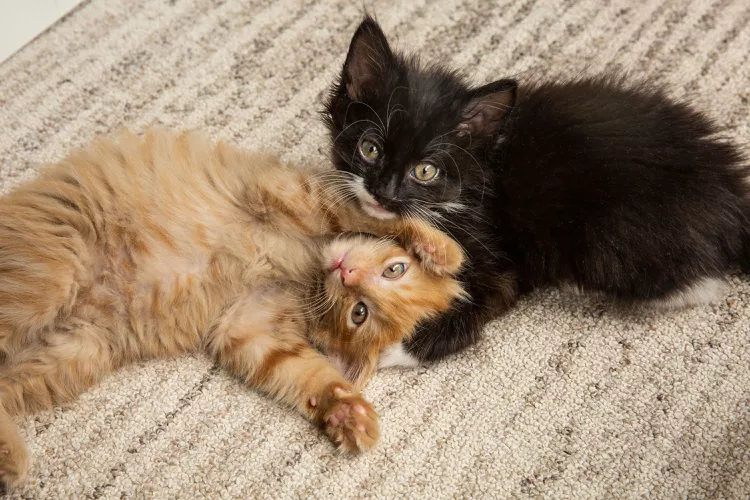
Why Two Kittens Are Better Than One
There are benefits of adopting two kittens, such as more feasible training and companionship between them.
Everything You Need to Know About Raising Your First Cat
Whether you are thinking about getting a cat or just adopted your first one, these are the things to know to make your relationship a lasting one.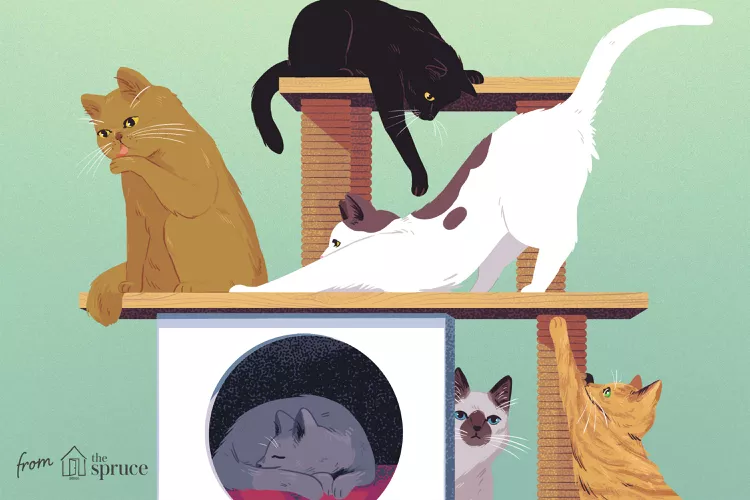
How Can I Tell the Sex of a Cat?
Telling male and female cats apart can be difficult for those who don't know what they're looking for. Here are helpful tips to discover their sex.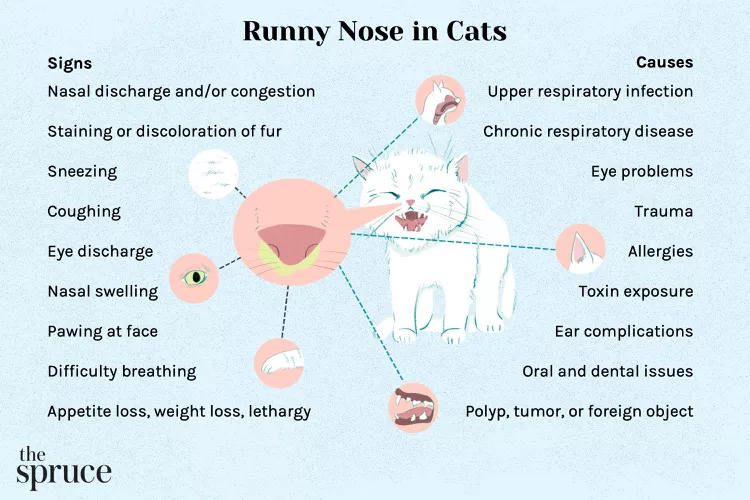
Runny Nose in Cats: Causes and Treatment
Cats get runny noses due to upper respiratory issues, but many conditions can cause this. Learn the causes of runny noses in cats and the associated signs. Find out how vets diagnose and treat cats with runny noses.
How Long Can You Safely Leave Canned Cat Food Out?
You cannot safely leave canned cat food out all day. Twenty to 30 minutes is the max, so give smaller portions and reheat food for later feedings.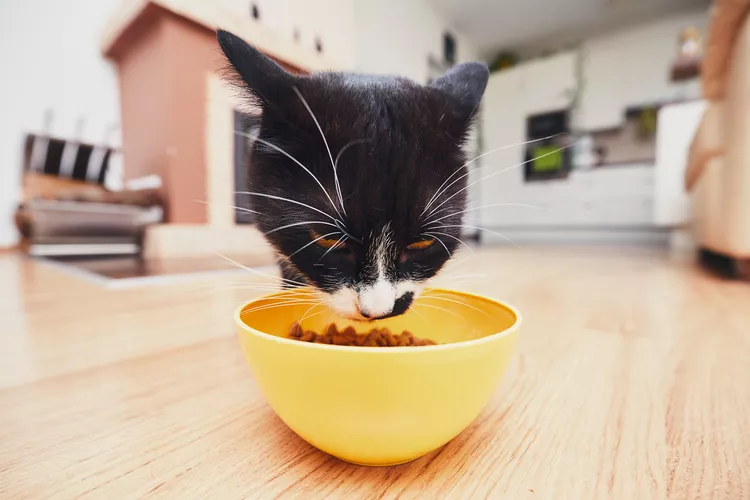
Meat Byproducts in Cat Food
Most cat experts recommend premium brands of cat food that avoid ingredients like byproducts and chicken meal. Learn what to look for on the label.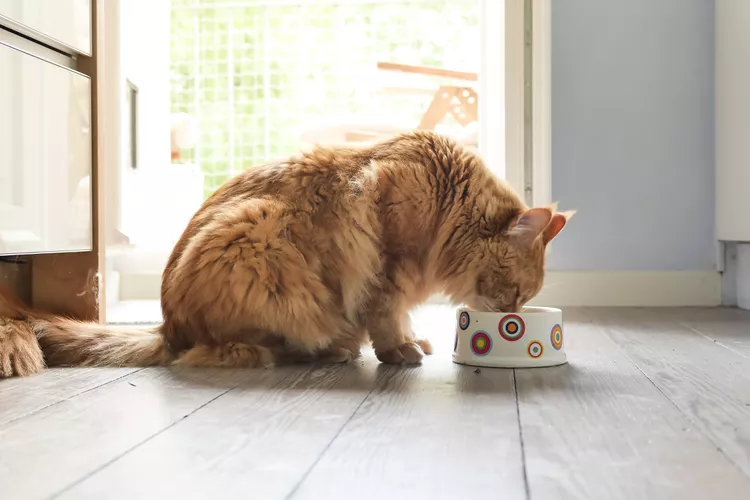
How Much Wet Food to Feed a Cat Every Day
The amount of wet food your cat needs depends on factors such as age, weight, body condition, and lifestyle. Learn how much wet food to feed your cat.
Taurine for Cats
Taurine is an essential animal protein in your cat's diet. Learn more about the various ways it supports your feline's body.
The Different Types of Pet-Friendly Workplaces
Discover the different types of pet-friendly workplaces and the benefits they offer employees. Learn how to create a pet-friendly workplace and the best practices for pet owners.
8 Halloween Safety Tips for Pets
The spooky holiday can be overstimulating and even dangerous for pets. Here's how to avoid the problems caused by toxic candy and incessant doorbells.
Why You Should Keep Cooked Bones Away From Your Dog This Holiday Season
People should be aware of the dangers of cooked bones, especially around the holidays when they might be more accessible to your pup.
Can Dogs Eat Squash? Here's What a A Vet Thinks
Dogs can safely eat squash as long as it's prepared correctly. Find out how to properly feed this versatile fruit to your dog.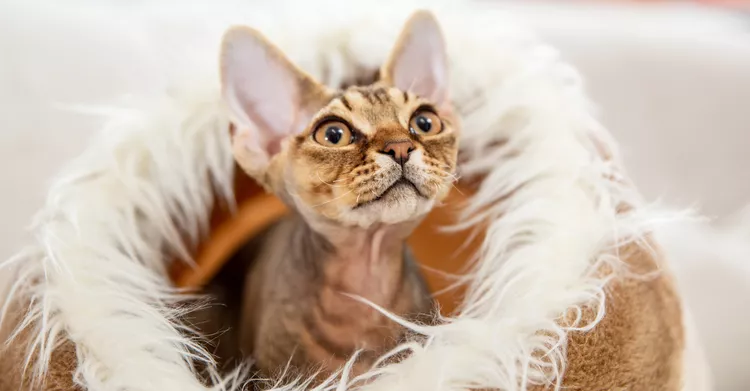
16 Small Cat Breeds That Are Petite Purring Machines
Small cat breeds like the Singapura and munchkin may be smaller than an average housecat, but they leave a giant imprint on your heart.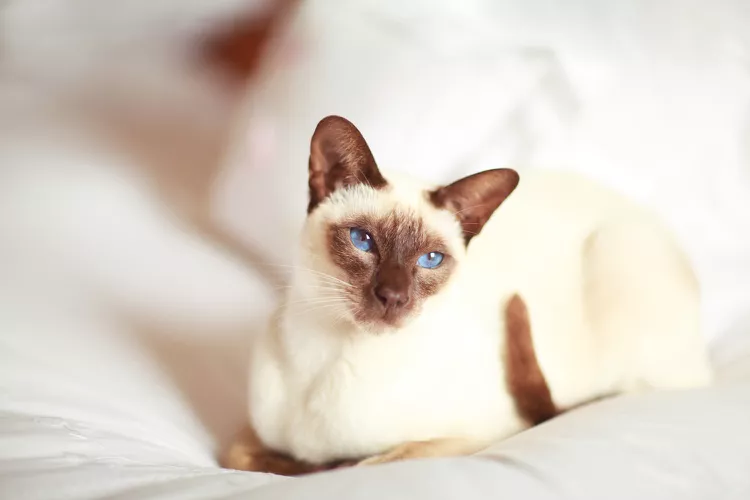
10 Best Cats With Big Ears
Cats with big ears often look extra endearing. Check out some common big-eared cats, including the Abyssinian, Devon Rex, Siamese, Sphynx, and more.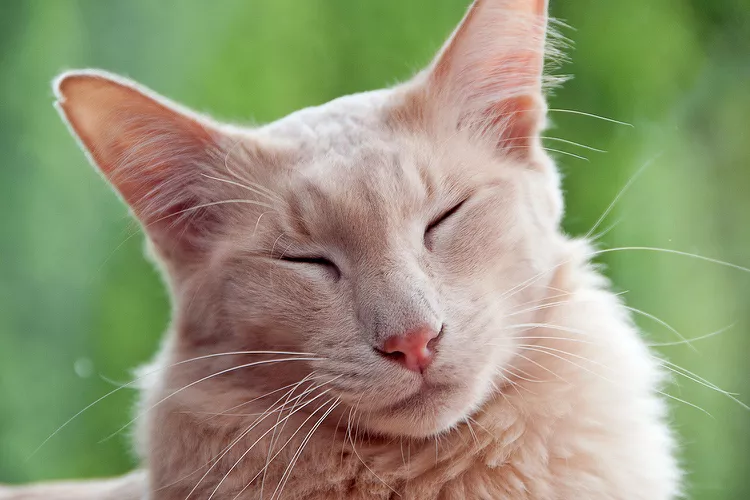
Javanese (Colorpoint Longhair): Cat Breed Profile, Characteristics & Care
The Javanese is a semi-longhaired, color-pointed cat of Siamese type. They are related to the Siamese, Colorpoint Shorthair, and Balinese breeds.
How to Stop Aggression in Dogs
Dog aggression can be a serious behavior issue for pet owners. Learn how to stop aggression in dogs before someone gets hurt.
Should Dogs Be Allowed on Furniture?
Should you let your dog on the couch or in the bed with you? Are there any reasons we should not let dogs on the furniture? Here's what to know.
Why Do Dogs Eat Rocks?
One of the most common non-food items for dogs to eat are rocks. Here's what to know about why dogs eat them and how can you stop your dog from eating rocks.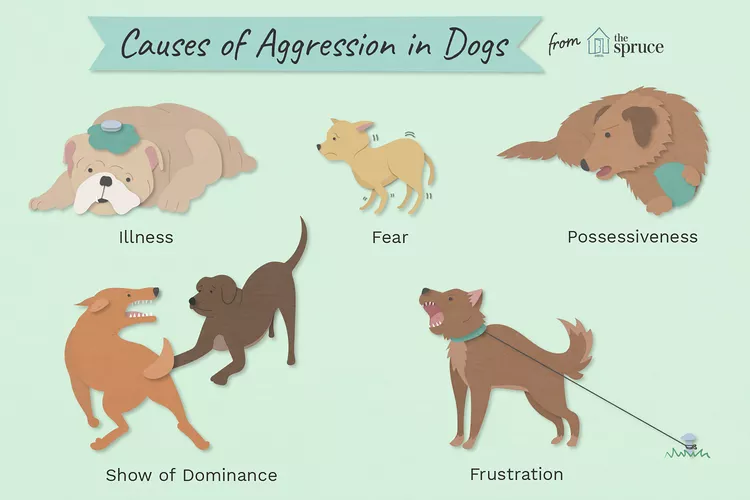
Why Dogs Get Aggressive and How to Stop It
Why is your dog biting you aggressively? Sometimes dogs can become aggressive with little warning. Find out what causes your dog to become aggressive so you can work with the behavior.
Thai Ridgeback: Dog Breed Characteristics & Care
Learn all about the Thai Ridgeback, a rare breed from Thailand. Find out how to care for the loyal dog and where to buy or adopt one.